Displaying results 151 - 160 of 1073
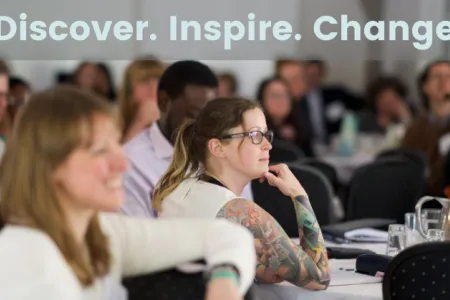
The 2020 Scholarship competition
We empower Scholars to have meaningful impact in their communities and institutions
The Pierre Elliott Trudeau Foundation 2020 Scholarship competition is now underway.
More than a scholarship, the Pierre Elliott Trudeau Foundation’s program is a gateway for bold and innovative thinkers who seek meaningful impact in their communities and institutions.
From November 15th, 2019 until January 22nd 2020, PhD students in the Humanities and Social Sciences – in Canada and abroad – may begin applying to be part of a unique three-year program providing generous financial support for research, and the opportunity to develop new skills as engaged leaders. Pierre Elliott Trudeau Foundation Scholars also benefit from participating in a vibrant community of Scholars, Mentors, Fellows and alumni.
We are seeking Scholars who wish to commit to a three-year program featuring the Foundation’s Institutes of Engaged Leadership, providing unconventional learning experiences that foster skills to help translate their expertise into meaningful action in Canada and the world.
The Pierre Elliott Trudeau Foundation 2020 Scholarship competition is now underway.
More than a scholarship, the Pierre Elliott Trudeau Foundation’s program is a gateway for bold and innovative thinkers who seek meaningful impact in their communities and institutions.
From November 15th, 2019 until January 22nd 2020, PhD students in the Humanities and Social Sciences – in Canada and abroad – may begin applying to be part of a unique three-year program providing generous financial support for research, and the opportunity to develop new skills as engaged leaders. Pierre Elliott Trudeau Foundation Scholars also benefit from participating in a vibrant community of Scholars, Mentors, Fellows and alumni.
We are seeking Scholars who wish to commit to a three-year program featuring the Foundation’s Institutes of Engaged Leadership, providing unconventional learning experiences that foster skills to help translate their expertise into meaningful action in Canada and the world.
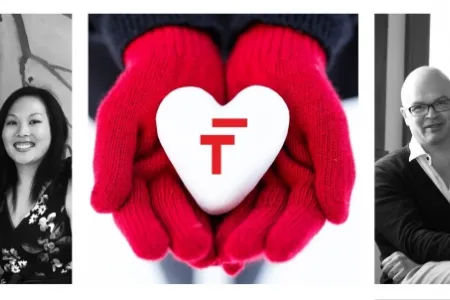
Happy Holidays!
Foundation offices closed until January 6th, 2020
The Pierre Elliott Trudeau Foundation would like to wish you a safe and happy holiday period. Please note the Foundation offices will be closed from December 23rd, 2019 until January 6th, 2020.
The Pierre Elliott Trudeau Foundation would like to wish you a safe and happy holiday period. Please note the Foundation offices will be closed from December 23rd, 2019 until January 6th, 2020.
Four Founding Themes
From the beginning, the Foundation decided to centre our actions on four major themes that reflect central questions in the life and works of Pierre Elliott Trudeau: Human Rights and Dignity, Responsible Citizenship, Canada and the World and People and their Natural Environment.
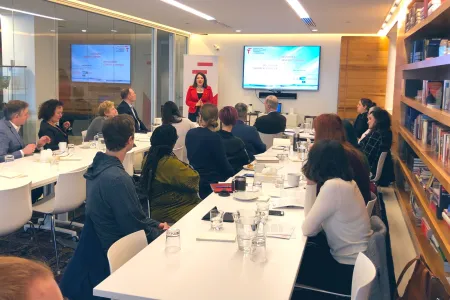
Launching our Strategic Plan
Between September 2018 and March 2019, the Foundation team undertook an unprecedented strategic planning exercise: The Future Forums. Thanks to this series of consultation workshops which took place across Canada, we gathered viewpoints from our own community and Canadians from universities, the public and private sectors, and from communities which often find themselves excluded from the collective national conversation.
On January 17th, 2020, we unveiled the contents of our Strategic Plan through perspectives that were shared by members of our community whose fields of expertise match some of the main themes that serve as the bedrock of our plan:
•Jamie Snook, 2017 Scholar (Regional Representation)
•Poonam Puri, 2016 Fellow (Inclusive Excellence)
•Robert Steiner, 2019 Mentor (Engaged Leadership)
•Graham Fraser, 2018 Mentor (BilingualismPlus)
•Caroline LeBlanc, 2019 Scholar (Volunteerism and Community Engagement)
On January 17th, 2020, we unveiled the contents of our Strategic Plan through perspectives that were shared by members of our community whose fields of expertise match some of the main themes that serve as the bedrock of our plan:
•Jamie Snook, 2017 Scholar (Regional Representation)
•Poonam Puri, 2016 Fellow (Inclusive Excellence)
•Robert Steiner, 2019 Mentor (Engaged Leadership)
•Graham Fraser, 2018 Mentor (BilingualismPlus)
•Caroline LeBlanc, 2019 Scholar (Volunteerism and Community Engagement)
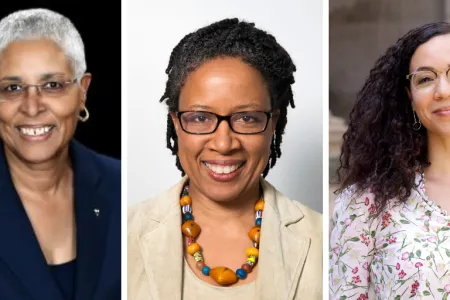
Black History Month through the eyes of the Foundation community
As Black History Month draws to a close, the Pierre Elliott Trudeau Foundation is sharing insights from three members of our community whose contributions have helped to build and tell this story.
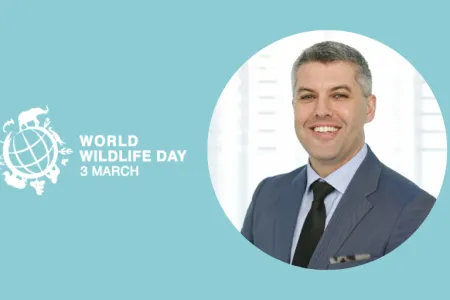
Jamie Snook: Enhancing Fisheries Co-Management in the Eastern Arctic
March 3rd is World Wildlife Day. In this spirit, the Pierre Elliott Trudeau Foundation is sharing an article co-authored by 2017 Scholar Jamie Snook published in Northern Public Affairs entitled “Enhancing Fisheries Co-Management in the Eastern Arctic.” The article was informed by a gathering of three Eastern Arctic co-management boards to discuss commercial fisheries and how decision-making responsibility is organized.
Jamie Snook is the executive director of the Torngat Joint Fisheries Board. The article argues for a need to co-operate across land claim regions, working together for shared species and learn from each other in order to improve how land claims are implemented.
You can read the article here.
Jamie Snook is the executive director of the Torngat Joint Fisheries Board. The article argues for a need to co-operate across land claim regions, working together for shared species and learn from each other in order to improve how land claims are implemented.
You can read the article here.
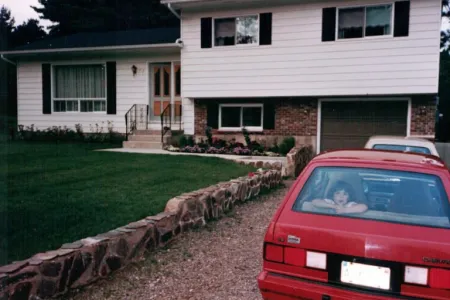
Lucas Crawford: The Crumple and the Scrape
Our 2007 Scholar Lucas Crawford has published an article in Places Journal titled “The Crumple and the Scrape.” In the article, Crawford explores how the language of architectural criticism influences the ways that we discuss the design of built space, asking, “what bodies do we build into our designs and our criticism?"
“Texture is every bit as political as color, as thoroughly imbricated in gender and sexual norms. It slides, if slyly, into our designs, vocabularies and tastes. Texture and gender are mutually defining.”
You can read the full article here.
Lucas Crawford is currently an Associate Professor at the University of New Brunswick.
“Texture is every bit as political as color, as thoroughly imbricated in gender and sexual norms. It slides, if slyly, into our designs, vocabularies and tastes. Texture and gender are mutually defining.”
You can read the full article here.
Lucas Crawford is currently an Associate Professor at the University of New Brunswick.
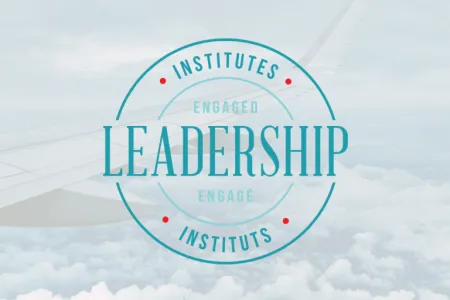
Yellowknife: Our first official Institute of Engaged Leadership
Yellowknife: Our first official Institute of Engaged Leadership
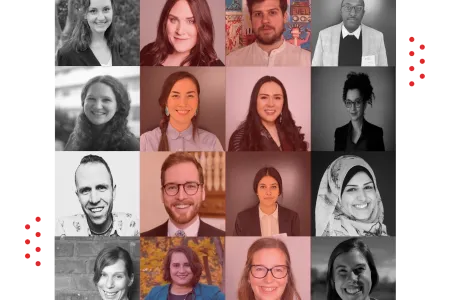
Meet Our 2020 Scholars
2020 Scholars
This year, the Pierre Elliott Trudeau Foundation has appointed 16 dynamic and diverse doctoral Scholars hailing from a broad array of academic backgrounds from every region of Canada and around the world.
This year, the Pierre Elliott Trudeau Foundation has appointed 16 dynamic and diverse doctoral Scholars hailing from a broad array of academic backgrounds from every region of Canada and around the world.
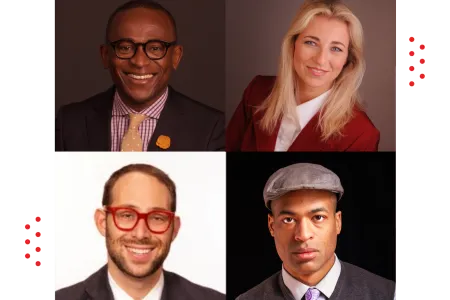
The pinnacle of excellence: meet our 2020 Fellows and Mentors
The Pierre Elliott Trudeau Foundation is proud to announce the appointment of our 2020 Fellows and Mentors, distinguished leaders who made extraordinary contributions in their respective fields and who will share their knowledge and expertise under our scientific theme Technology & Ethics over the next three years. With the ongoing, ever-changing circumstances stemming from the proliferation of COVID-19, this area of research will be more relevant than ever to our community, domestically and internationally.

